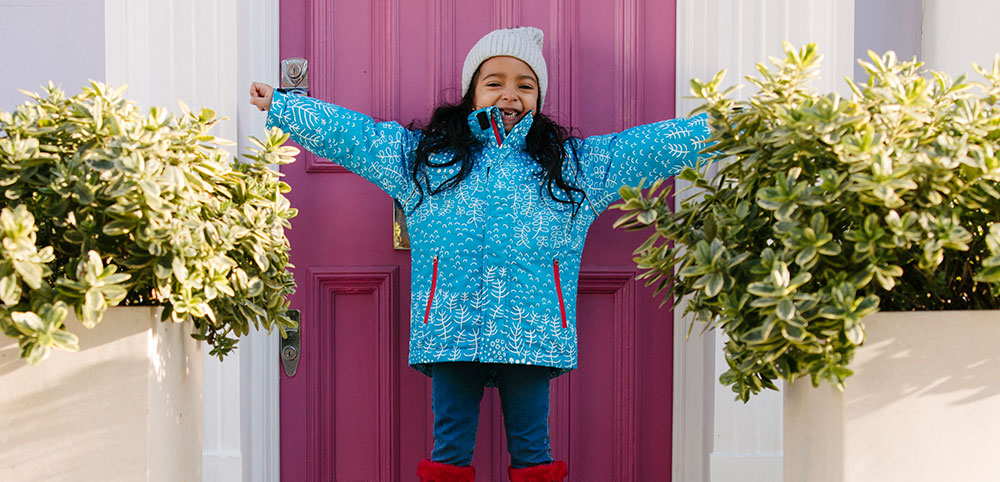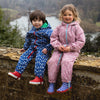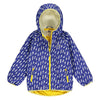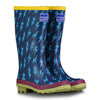
4 Ways to Connect with Nature in the City
There is growing evidence that spending time in nature helps our health and well-being, but what if you live in the middle of a city, how can you and your child connect with nature?
We asked My First Five Years to share their ideas for connecting with nature when you haven’t got time for a trip to the countryside and how that connection with support your child's learning and development.
1) Look at the sky!
At first your baby will not differentiate between night and day. You can help them to begin to notice the difference by looking at the sky together and noticing when it is dark or light. As your child gets older, they might notice the moon, and if you can find somewhere that is not too bright you might be able to look at the stars with them on a winter’s night when it is dark a bit earlier!
You could also look at the sky together to see what you can find out about the weather from how the sky looks, does it look like it might rain? Go for a walk and see if you can find somewhere away from busy roads, perhaps find somewhere that you can sit together and look at the sky. Your child might be able to see a shape in the clouds, finding shapes in clouds, or in the bark of a tree helps your child to develop their visual skills, and to link what they see with what they know. They find a shape and think about how this is similar to other things, so as well as being a relaxing game cloud spotting can help your child to develop their thinking skills.
2) Find a puddle
Pop on some waterproofs and wellies and head out on a wet day to see how many puddles you can find. Try to find somewhere without too much traffic so your child can have a go jumping over or splashing in the puddles. Puddle jumping is a great way of developing gross motor skills, and planning movement as your child needs to think about how far to jump to jump over, or into the puddle. Splashing gives them a chance to explore cause and effect, as they make links between how hard they stamp and how big the splash is that they make.
If you go out while it is raining you could also watch how the rain runs down the pavement and into the grids. Your child might be interested in knowing more about where the rain goes after it has disappeared down the grid, so you could see what you can find out about that when you get home.
3) Nature spotting
Even in the middle of a large city you can often find some green spaces, or some plants growing. Go out together and do some nature spotting. You could even give you child a few photographs of things that you are going to look for together, or take photos as you find things and talk about what you found when you got home. If your child often wakes up early you could have an early morning walk and see if you can spot more birds, bugs and animals when it is quieter.
Talking about the things that you find will help your child to develop their vocabulary as they hear you use the names of the things that you see. Then talking about what you saw together will help your child to learn about the world around them and begin to categorise the things that they have seen. If you go to the same places at different times of year your child will begin to notice how things change with the season. You could collect blossom in Spring and leaves in Autumn!
4) Find local groups
You can do some planting at home, but also see if there are any local groups who are trying to bring more nature into your area. You might find a group arranging plant swaps or planting plants on one of your local streets. Perhaps you and your child could go along and help, your child will learn about how things grow and change and learn more about their local area and community.
If there aren't any groups locally you could plant some seeds at home, let your child help you to look after the plants. They will learn about how things grow and change, and what plants need to grow, they will also be able to develop their physical skills as they fill, carry and tip to water the plants. Even if it seems that there is no nature around you, when you look you might be able to find nature in the streets around your home or to bring nature into your home. You and your child will benefit from spending time in nature and they will develop their physical, language and thinking skills as well as using their senses to explore and find out about the world.
References White, M.P., Alcock, I., Grellier, J. et al. Spending at least 120 minutes a week in nature is associated with good health and wellbeing. Sci Rep 9, 7730 (2019). https://doi.org/10.1038/s41598-019-44097-3








